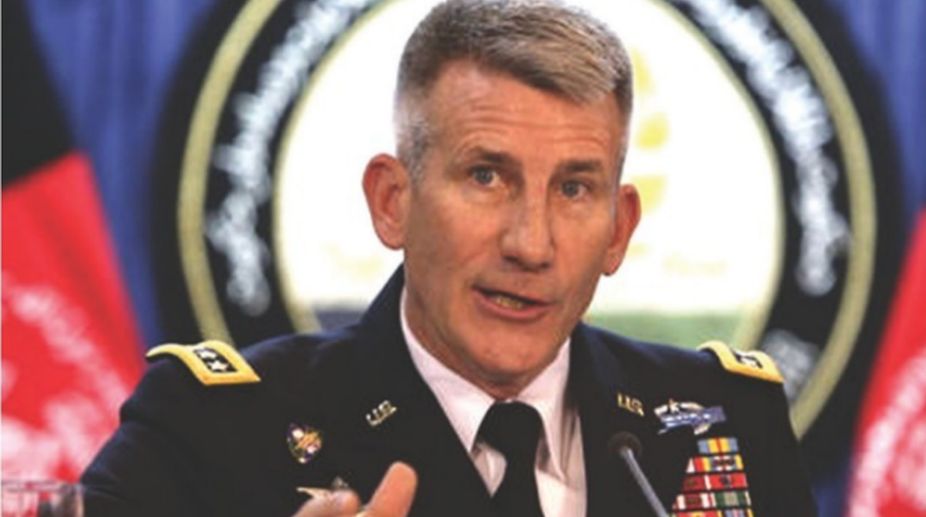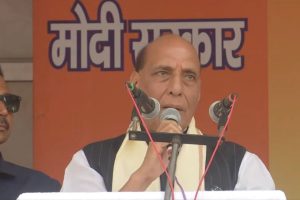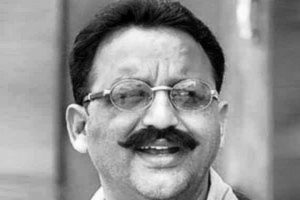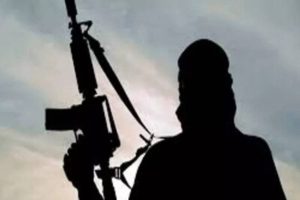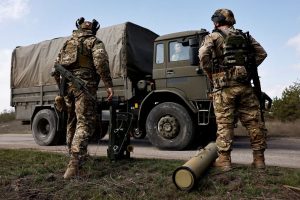Donald Trump’s latest tirade against Pakistan, holding it solely responsible for the failure in Afghanistan, has rattled the country. The past fortnight has witnessed statements emanating from the Pakistan army chief, their national security council and even the senate, criticizing the US. Pakistan has been in a state of denial, using every forum and media, but to no avail.
A new irritant were comments made by General Nicholson, the commander of the Resolute Support Force (RSF) of NATO in Afghanistan, where he stated in a press interview that the US was aware of the Taliban and Haqqani leadership being safely ensconced in Peshawar and Quetta. Pakistan jumped again into denial mode, but half-heartedly. Adding insult to injury was the US’ request to India to play a greater role in Afghanistan.
The Pakistan senate can only scream, as it has no control on foreign policy towards India, Afghanistan and the US, which are solely the army’s prerogative. This was evident when the US ambassador to Pakistan met the army chief and not the foreign minister or foreign secretary in the government, post Trump’s announcement. Members of the senate criticised this meeting, but could do nothing.
The elected government also has no control over the support being provided to terror groups operating against Afghanistan and India, as they remain the sole prerogative of the deep state. The supposed leak in Dawn newspaper, leading to the resignation of the Information Minister, was over the deep state’s support to terror groups.
Anger against the US may be displayed, local temperatures built up by protests, meetings and visits postponed, conciliatory statements issued and criticism of the policy openly declared, yet nothing will change, as the world is aware of Pakistan’s direct involvement. It can only approach China and Russia for support, as due to geopolitical compulsions, they remain Pakistan’s only support base. However, when push comes to shove, Pakistan may find itself alone in this diplomatic battle. If the US imposes sanctions, China may be forced to support them, mainly because its trade ties with the US may be affected.
The maximum hurt to Pakistan was caused when the US announced an enhanced role for India in the region. There is immense fear within their security establishment that their soft underbelly of Baluchistan, presently being brutally crushed, would be accessible to Indian influence, once it establishes a foothold in Afghanistan. This issue has gained prominence, after Prime Minister Modi’s Independence Day speech of last year, where he considered diplomatic support to the freedom struggle in the region. Hence, while it is willing to challenge the US on its comment, it has yet to evolve any strategy to counter US plans for India.
Pakistan’s basic problem is that it views everything from an Indian prism. Its policy in Afghanistan is based on keeping India away from the country. While it professes support for peace in Afghanistan, its visualisation of peace stems from the Taliban and the Haqqani network being a part of the government. The Pakistan army viewpoint remains that this is the only way India can be kept away from Afghanistan. Comments by the US, that it only views Indian role to remain confined to economic development have cut no ice with Islamabad.
The other major worry for Pakistan is the growing power of the Taliban. Its dependence on Pakistan for support is receding, as it draws most funds to purchase weapons and fighters from its opium produce and is also in contact with Russia and China, solely because it opposes the ISIS. Iran is also known to be providing sanctuary to the Taliban. Hence, offensive action, if resorted to by Pakistan, could compel the Taliban to turn inwards, making security management even more cumbersome for their army.
Pakistan’s attempt to display anger against the US has had no impact. The US has announced that any further release of coalition funds would be contingent on Pakistan’s anti-terror actions. Pakistan has attempted to adopt measures which internally may appear logical but internationally would be meaningless, solely considering its past record. The comments by their leaders on casualties suffered by the country are considered irrelevant, as US statements are clear on Pakistan resorting to selective anti-terror actions.
Osama Bin Laden was eliminated in Abbottabad, barely a hundred km from Islamabad, and close to the Pakistan military academy, by a US Navy Seals operation. Similarly, Mullah Mansour, the erstwhile head of the Taliban was killed by a US drone strike in Pakistan. Anti-India terror groups and their leaders, nominated as international terrorists by the US, with bounties of ten million dollars, roam freely in Pakistan, openly address the public and gather funds. A nation which resorts to selective targeting of terrorists can never be trusted to implement an anti-terror strategy, in consonance with the rest of the world.
Over the years, Pakistan has lost the trust of the West, solely because it has viewed Afghanistan as part of its strategic depth and attempted to keep India away. Its Afghan policy, seeking to dominate the country by employing terror groups has resulted in Afghanistan considering Pakistan an enemy rather than a reliable neighbour. It is only to counter Pakistan’s support to the Taliban and Haqqani network that the Afghan military would have reduced its scale of operations against the TTP, the anti-Pak terror group.
The US has clearly changed its policy from carrot and stick to just a stick. While enhanced force levels have yet to be announced and implemented, it is evident that the US would seriously plan to target Taliban and Haqqani network operatives and training camps within Pakistan. This would result in collateral damage and embarrass the Pakistan army, as it would be unable to counter. This may be the final nail on their coffin of denial.
If Pakistan seeks to be accepted as a nation with no terror links then it would need to reconsider the way it operates against terror groups. Unless it acts against all terror groups, it would never win the trust of the comity of nations and may soon be declared a terrorist supporting state.
The writer is a retired Major-General of the Indian Army.

